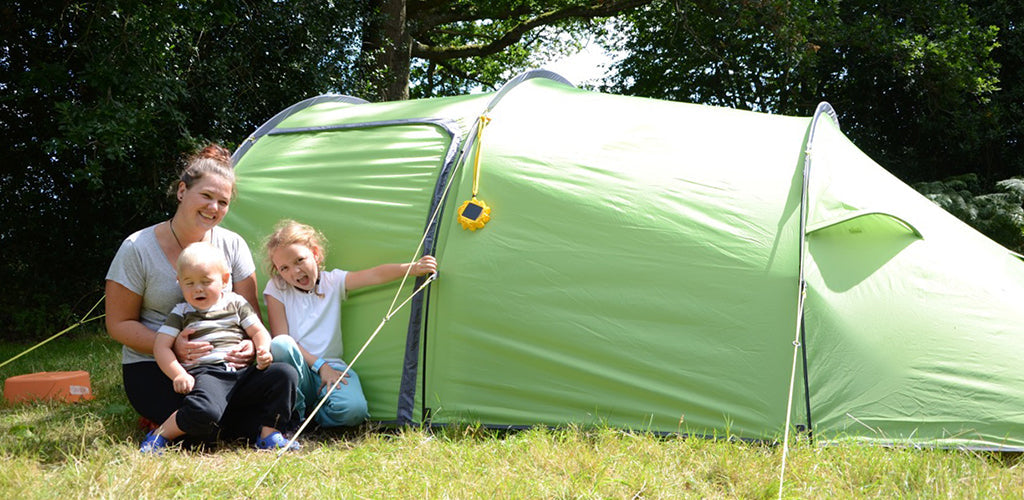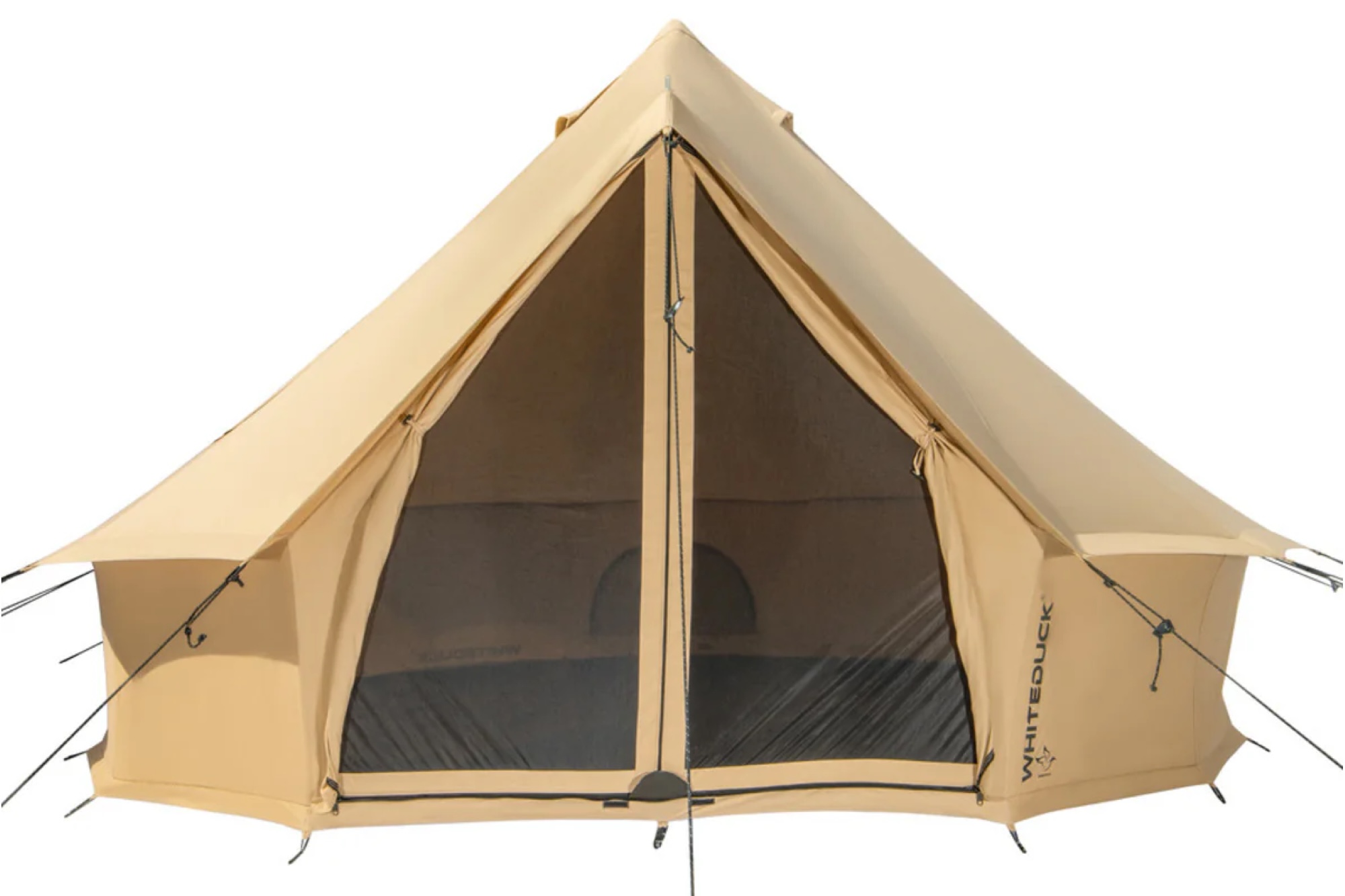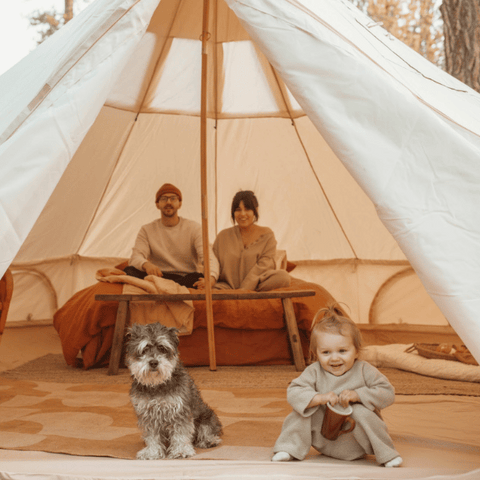Are you planning a camping trip and wondering, “Do I need a tent for camping?” It’s a question that can make or break your outdoor experience. Your comfort, safety, and even the fun you have depend on the right gear.
Imagine waking up to unexpected rain or biting cold without proper shelter. Sounds stressful, right? This article will help you decide if a tent is a must-have for your adventure or if there are better options for your style of camping.
Keep reading to discover what fits your needs best.

Credit: www.reddit.com
Choosing The Right Shelter
Picking the right shelter is important for a good camping trip. Your choice depends on the weather, location, and how long you stay.
Many options exist besides tents. Each shelter type has its own uses and benefits. Understanding these helps you pack smart.
Tents Vs Other Options
Tents are the most common shelter for campers. Other options include hammocks, tarps, and bivy sacks. Each offers different protection and comfort.
Tents protect well against rain and wind. Hammocks are light and good in warm weather. Tarps are simple and flexible. Bivy sacks are very compact but less roomy.
- Tents: Full protection, more weight
- Hammocks: Lightweight, need trees
- Tarps: Versatile, minimal protection
- Bivy sacks: Small, less space
Benefits Of Using A Tent
Tents keep you dry and safe from bugs. They offer privacy and a place to store gear. Many tents also block wind and cold.
Using a tent makes sleeping easier in bad weather. It creates a cozy space that feels like home outdoors.
- Protects from rain, wind, and insects
- Provides privacy and security
- Offers space to store gear
- Improves sleep quality in tough conditions
When To Skip The Tent
You can skip a tent when camping in warm, dry weather. If you carry a hammock or tarp, you might travel lighter and faster.
Some campers prefer open-air sleeping under the stars. In safe areas without bugs, a tent may not be needed.
- Warm and dry weather
- When using a hammock or tarp
- Short trips with light gear
- Safe, bug-free camping spots
Types Of Tents For Beginners
Choosing the right tent is important for a good camping trip. Beginners should pick tents that are easy to use and fit their needs. There are many types of tents for different camping styles.
This guide explains four common tent types for beginners. Each type has its own features and benefits. Knowing these will help you decide if you need a tent and which one suits you best.
Backpacking Tents
Backpacking tents are light and small. They are easy to carry in a backpack. These tents are good for hikers who walk long distances.
They usually fit one or two people. They use less space and weight but still protect you from wind and rain. Setup can be simple but some models need practice.
- Lightweight and compact
- Fits 1-2 people
- Good for hiking and trekking
- May need some setup skills
Pop-up Tents
Pop-up tents open quickly and easily. They are perfect for beginners who want fast setup. Just take them out and they pop into shape.
These tents are usually small to medium size. They are great for short camping trips or festivals. They are less good in strong wind or heavy rain.
- Set up in seconds
- Easy to use for beginners
- Good for quick trips
- Less sturdy in bad weather
Family Tents
Family tents are big and spacious. They can fit several people and gear. They are ideal for camping with kids or groups.
These tents offer more comfort and space. They can have separate rooms and tall ceilings. Setup takes longer but is easier with two or more people.
- Large and roomy
- Fits multiple people
- Good for families or groups
- Longer setup time
Ultralight Tents
Ultralight tents weigh very little. They use special materials to keep weight down. These tents are great for serious hikers and campers.
They can cost more but save energy on the trail. They usually fit one or two people. Setup is simple but needs careful handling because of thin fabric.
- Very light for easy carrying
- Fits 1-2 people
- Good for long hikes and backpacking
- More expensive and delicate
Key Features To Consider
Alternatives To Tents
You do not always need a tent for camping. There are other ways to stay dry and safe outdoors. These options can be lighter and easier to carry.
Below are some common alternatives to tents that many campers use.
Hammocks
Hammocks let you sleep off the ground. They are good for places with trees. A hammock keeps you away from bugs and wet ground.
You can add a rainfly or bug net for more protection. Hammocks are light and easy to set up. They are great for warm weather camping.
Tarps
Tarps are simple sheets that block rain and wind. You can tie them between trees or poles. They create a shelter that is open and airy.
Tarps weigh less than tents and take less space. You can set them up in many ways. Tarps work well if you want fresh air and quick shelter.
- Lightweight and compact
- Flexible shelter shapes
- Good for dry weather or mild rain
Bivy Sacks
Bivy sacks are small, waterproof covers for your sleeping bag. They protect you from rain, wind, and bugs. Bivys are very light and easy to carry.
They fit in tight spaces where tents cannot. Bivy sacks are best for solo campers who want minimal gear. Use them with a sleeping pad for comfort.
Camping Scenarios And Shelter Needs
Choosing the right shelter depends on the type of camping you plan to do. Different camping styles need different kinds of protection from weather and insects.
Not every camping trip requires a tent. Some situations allow other shelter options or even no shelter at all. Let’s look at common camping scenarios and what shelter fits best.
Car Camping
Car camping means you camp near your vehicle. You can bring larger and heavier gear. This makes carrying a tent easy and practical.
A tent is usually needed to protect you from rain, wind, and bugs. It also gives privacy and a comfortable space to sleep.
- Tents can be bigger and more spacious
- Easy to set up with plenty of gear
- Good protection from weather and insects
- Provides privacy in crowded campsites
Backcountry Camping
Backcountry camping means hiking far from roads and towns. You carry all your gear on your back, so weight matters a lot.
Lightweight tents or shelters are best. Some campers use tarps or hammocks with rain flies. A tent gives more protection but weighs more.
- Choose lightweight tents for easy carrying
- Tarps offer minimal shelter but save weight
- Hammocks can be comfortable but need trees
- Tents protect against bugs, rain, and wind
Festival Camping
Festival camping usually happens in crowded areas with many people nearby. Comfort and quick setup are important.
A tent helps mark your spot and keeps your belongings safe. It also protects you from sun and rain during the event.
- Choose easy-to-set-up tents
- Use tents to secure your gear
- Protection from sun and rain is key
- Privacy can be limited in festival areas

Credit: outdoorpeople.org.uk
Essential Tent Accessories
Camping with a tent is fun but needs some extra gear. These accessories help keep your tent safe and comfortable.
They also make setting up your tent easier and fix small problems quickly. Let’s look at some important accessories.
Footprints And Ground Cloths
Footprints and ground cloths go under your tent. They protect the tent floor from sharp rocks and dirt.
These help keep the bottom clean and dry, making your tent last longer. They also add extra comfort when you sleep.
Tent Stakes And Guylines
Tent stakes hold your tent to the ground. They stop it from moving in wind or bad weather.
Guylines add extra support to keep your tent stable. They are ropes tied from the tent to the ground.
- Use strong stakes for hard or rocky soil
- Check guylines often to keep them tight
- Extra stakes help in windy or soft ground
Repair Kits
Repair kits fix small tears or broken parts in your tent. They are handy in emergencies.
Most kits include patches, tape, and tools to fix zippers or poles. Carry one to avoid big problems on your trip.
- Patch tape for holes or rips
- Replacement zipper sliders
- Small sewing kits or pole repair sleeves
Tips For Tent Setup And Maintenance
Camping with a tent requires some planning to stay safe and comfortable. Setting up your tent properly helps protect you from weather and insects.
Keeping your tent clean and well-maintained makes it last longer and work better on every trip.
Choosing The Campsite
Select a flat area free of rocks and roots. This makes your tent more stable and comfortable to sleep in.
Look for natural wind protection like trees or bushes. Avoid low spots that collect water during rain.
- Check for dry ground to avoid puddles
- Stay away from dead branches that might fall
- Keep some distance from water sources to reduce bugs
Proper Pitching Techniques
Start by laying out your tent footprint or tarp to protect the floor. Then, assemble the poles and attach them to the tent body.
Tighten the tent fabric evenly to avoid sagging. Use stakes to secure the corners and guy lines to add stability.
- Position the door away from the wind
- Ensure all zippers close smoothly
- Use a rainfly to keep the tent dry
Cleaning And Storage
After your trip, shake out dirt and debris from the tent. Spot clean any stains with mild soap and water.
Make sure the tent is fully dry before folding. Store it in a cool, dry place to prevent mold and damage.
- Do not wash the tent in a washing machine
- Avoid storing it in a sealed plastic bag
- Check for tears and fix them before storing

Credit: gearjunkie.com
Frequently Asked Questions
Is A Tent Necessary For Camping?
A tent provides essential shelter from weather and insects. It ensures privacy and security while camping. If you prefer outdoor sleeping, consider weather and campsite conditions. Alternative options like hammocks or bivy sacks may suffice. Ultimately, a tent enhances comfort and safety, making it a wise choice for most campers.
What Are Tent Alternatives For Camping?
Tent alternatives include hammocks, bivy sacks, and tarps. Hammocks are lightweight and comfortable but need trees. Bivy sacks are compact, ideal for solo campers. Tarps offer versatile shelter and are budget-friendly. Choose based on weather, campsite, and personal preference. Each alternative has unique advantages and limitations.
How To Choose The Right Camping Tent?
Consider size, weight, and seasonality when choosing a tent. A lightweight tent suits backpacking, while a spacious one is best for families. Ensure it’s weather-appropriate with adequate ventilation. Consider setup ease and durability. Reading reviews and assessing your camping needs helps in making an informed decision.
Can I Camp Without A Tent?
Yes, you can camp without a tent using alternatives like hammocks or tarps. However, consider weather conditions and personal comfort. These options might lack the protection and privacy tents offer. Ensure you’re equipped for potential challenges like rain or insects.
Always prioritize safety and preparedness.
Conclusion
Choosing to bring a tent depends on your camping style and weather. Tents offer shelter, privacy, and protection from bugs. Some campers prefer sleeping under the stars or using hammocks. Think about your comfort and safety needs before deciding. A tent can make your trip easier and more enjoyable.
Camping without one is possible but less secure. Plan well and choose what fits your adventure best. Enjoy nature your way!

